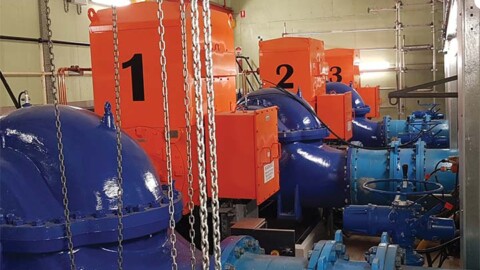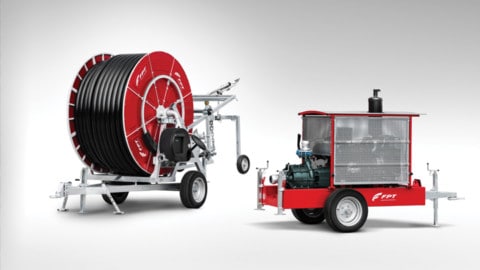When the pressure of flowing liquids drops to, or below, the liquid’s vapour pressure, the liquid boils and vapour cavities (bubbles) form locally inside the liquid. If the pressure within the flow path subsequently increases above the vapour pressure, the vapour cavities implode, releasing energy. The formation and sudden collapse of these bubbles is called cavitation.
When the pressure of flowing liquids drops to, or below, the liquid’s vapour pressure, the liquid boils and vapour cavities (bubbles) form locally inside the liquid. If the pressure within the flow path subsequently increases above the vapour pressure, the vapour cavities implode, releasing energy.
The formation and sudden collapse of these bubbles is called cavitation. The presence of cavitation due to inadequate NPSH can be diagnosed during pump operation by a steady crackling noise in and around the pump suction.
This should not be confused with a random crackling noise with high intensity knocks which indicates another condition termed suction recirculation (not covered below).

If the problem was one of noise alone, it is likely that most situations would call for no remedial action. However, continual cavitation causes mechanical and operational problems as follows:
- Erosion of impeller, particularly at the leading edges of the impeller vanes. In some cases, the casing itself will show signs of erosion. The extent of damage experienced is significantly affected by product-related factors such as corrosion and abrasion. Apart from the damage to the parts, the erosion can cause loss of pump efficiency and out-of-balance problems with the impeller
- The vibrations caused by cavitation and unbalanced loads significantly accelerate the rate of bearing and mechanical seal failures
- The vapour cavities will impede the flow of liquid through the impeller. In some cases, the flow may be completely blocked. This will result in reduced capacity plus reduced and/or unstable developed head
With a vast array of pumping designs and solutions available, ensuring you have the right pump for the right application involves a thorough set of considerations. Moreover, proper pump selection at the initial stage is essential in preventing cavitation. Consider consulting your pump supplier to discuss your pumping requirements.
Article courtesy of Kelair Pumps Australia “When Pump Knowledge Matters”
Phone 1300 789 466, or visit www.kelairpumps.com.au.

















